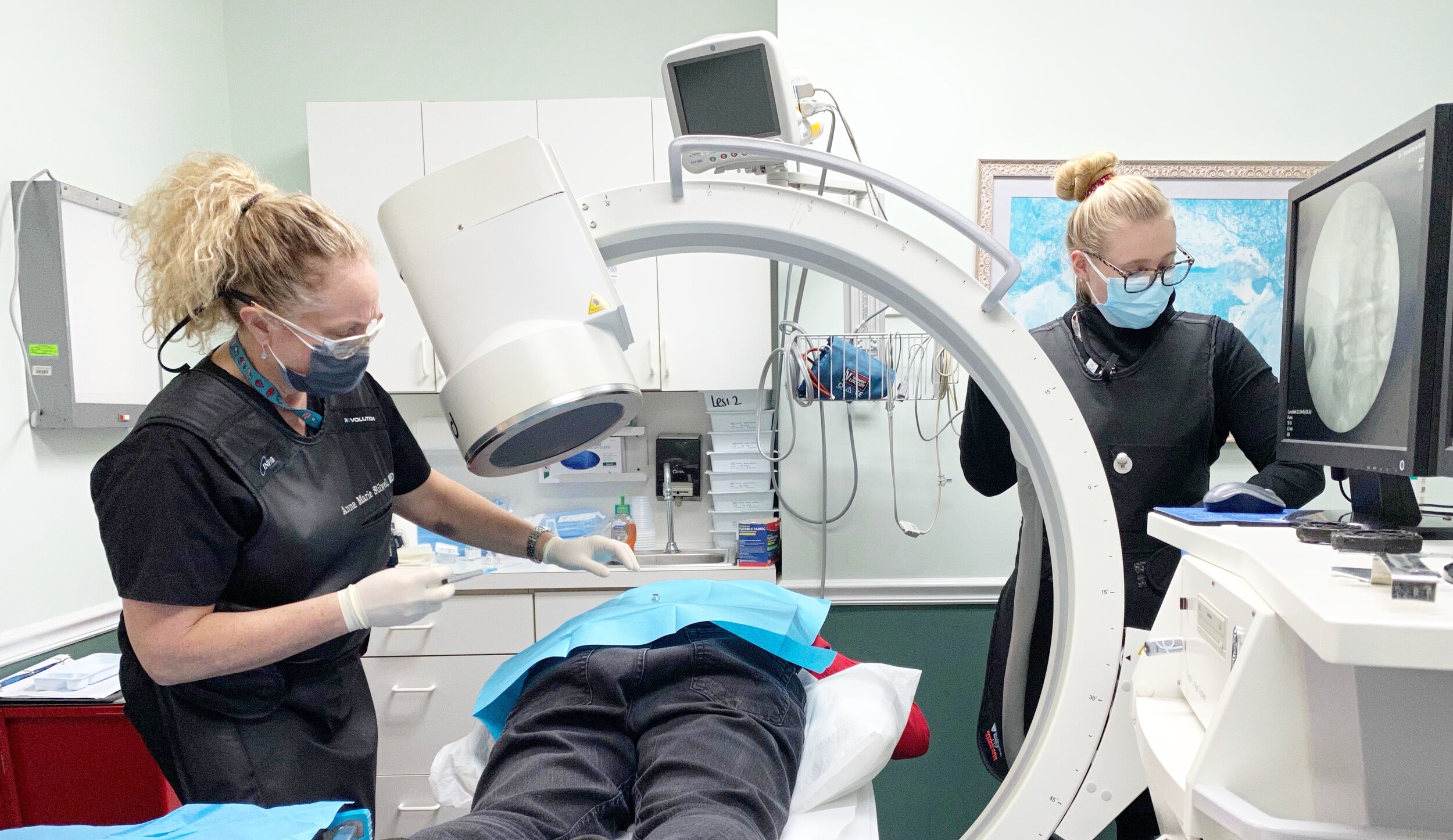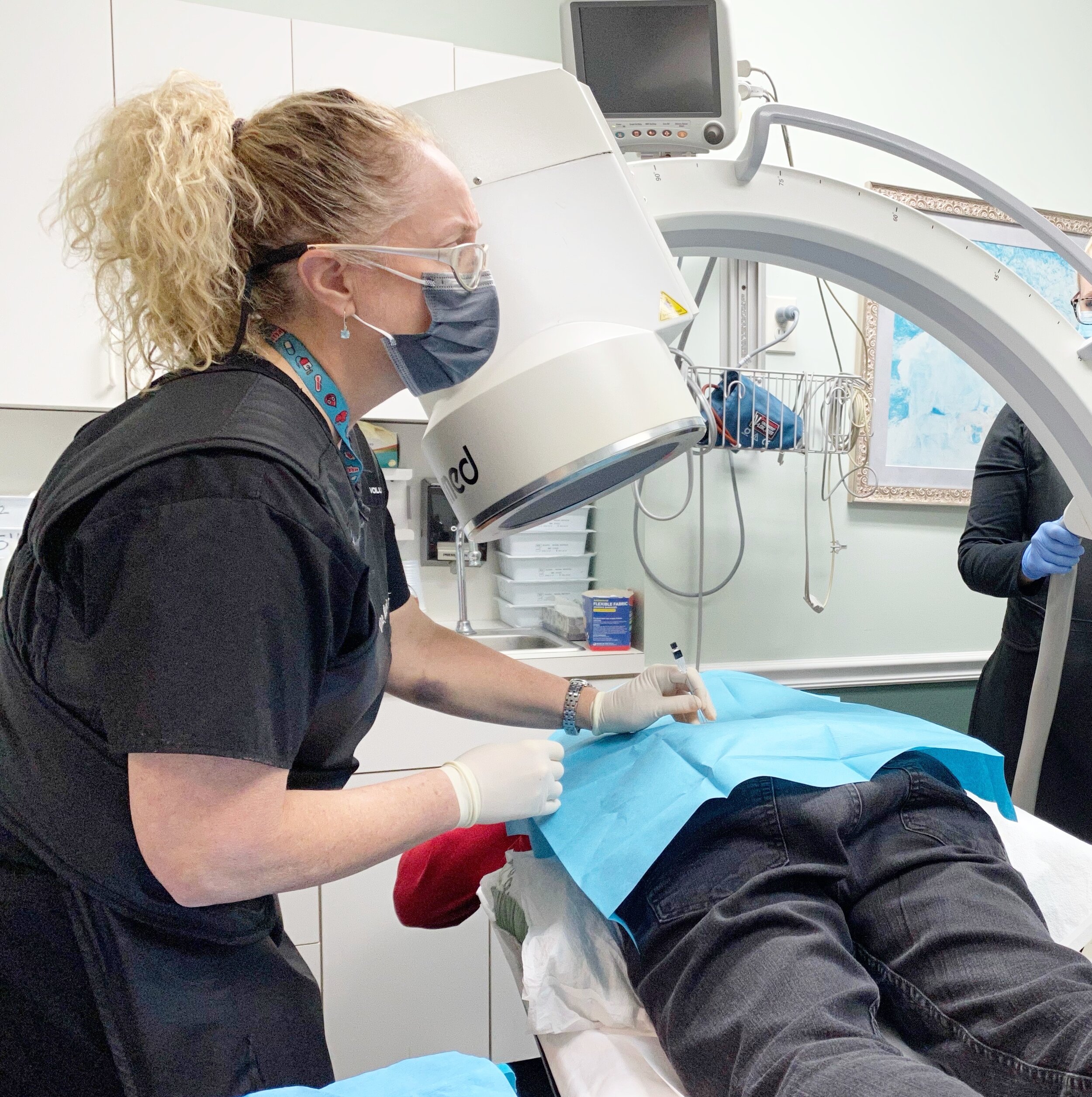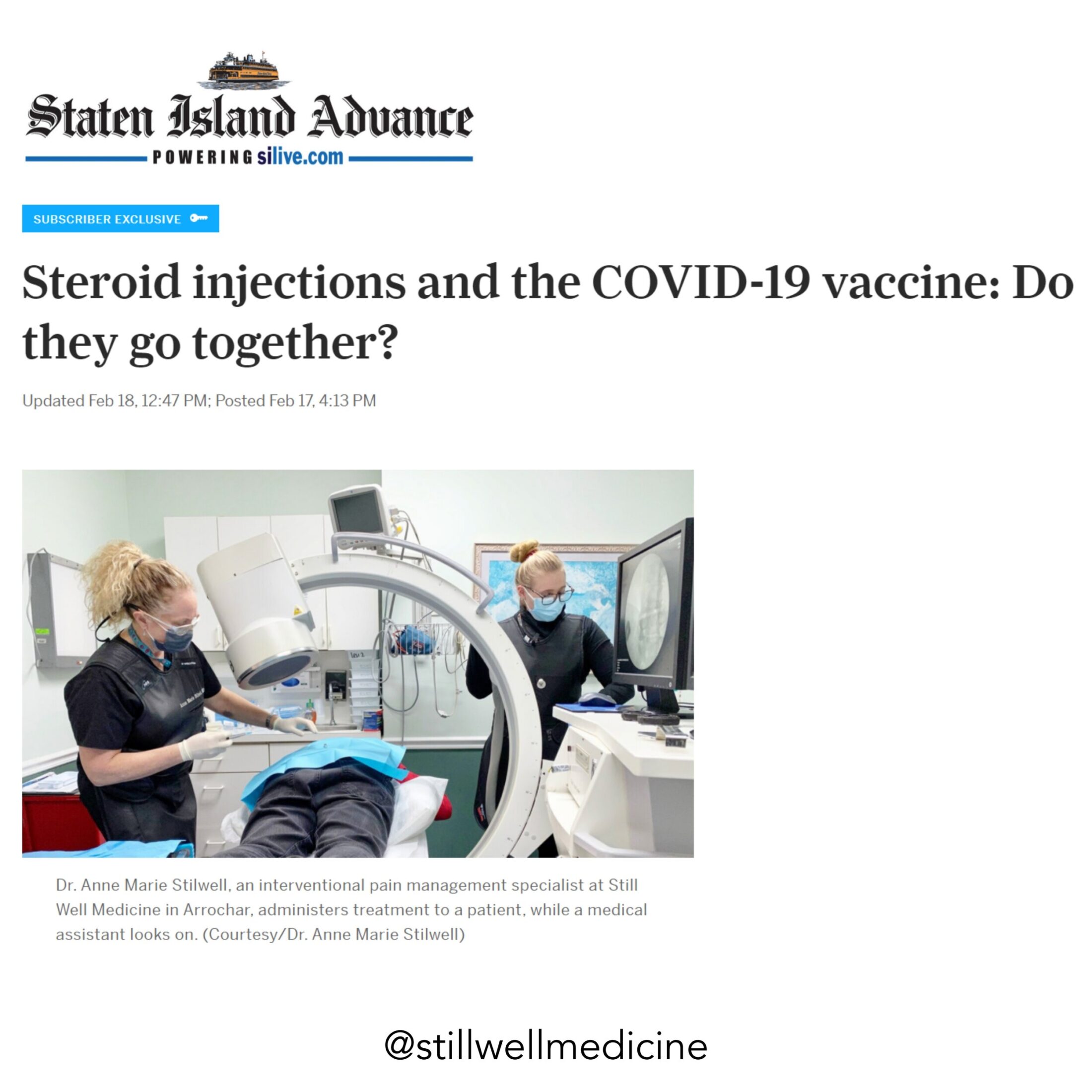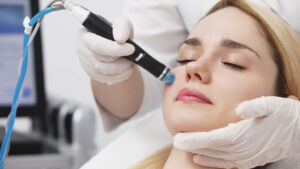
SiLive Article Link: Steroid injections and the COVID-19 vaccine: Do they go together? – silive.com
Updated Feb 18, 12:47 PM; Posted Feb 17, 4:13 PM

Dr. Anne Marie Stilwell, an interventional pain management specialist at Still Well Medicine in Arrochar, administers treatment to a patient, while a medical assistant looks on. (Courtesy/Dr. Anne Marie Stilwell)
By Carol Ann Benanti | benanti@siadvance.com
Dr. Anne Marie Stilwell, an interventional pain management and regenerative medicine specialist for nearly 31 years, is offering COVID-19 advice to individuals who are receiving steroid injections for procedures like epidurals and intra-articular injections as treatment for joint and lower back pain and sciatica.
She says there’s been no concrete studies regarding these injections and COVID, but it’s speculated that steroids might have a beneficial effect on the course of the virus, despite being “potentially immunosuppressive” — which in layman’s terms means partially or completely suppressing the immune response of an individual.
“Initial reports demonstrate the beneficial effect of steroids,” Stilwell said. “In fact, a review of seven clinical trials across 12 countries have concluded that corticosteroids — like those used in epidural injections — are associated with lower mortality among critically ill patients with COVID-19.
But despite the comforting news, other guidelines caution against using steroids during the pandemic — and many pain physicians have curtailed using steroids, or are using them in low doses.
She endorses the American Society of Interventional Pain Physician’s (“ASIPP”) guidelines on providing steroid injections during COVID-19 before and after being vaccinated with either of the two vaccines currently approved in the United States — Pfizer and Moderna.
“However, what remains to be seen is whether or not steroid use around the time of actual vaccine administration would hinder or negatively impact the efficacy of a vaccine,” she added.
“Before COVID-19 vaccination, for patients receiving short-acting steroids, a two-week waiting period for vaccination may be appropriate. For patients receiving long-acting steroids, it may be appropriate to wait at least four weeks prior to the vaccination to avoid any interference,” she advised.

Stilwell treats a patient. (Courtesy/Dr. Anne Marie Stilwell)
In other words, after the COVID-19 vaccination, it’s recommended to delay interventional pain procedures with steroids for two weeks after the second or final dose of the vaccine.
“If this is not possible because the patient may be suffering from severe debilitating pain or pain that negatively impacts their ability to maintain activities of daily living, it is recommended to proceed with the injection at the discretion of your interventional pain management physician and to consider using local anesthetic only and the lowest possible effective dose of short-acting steroids,” she added.
“The first thought was that it wasn’t a good idea to give people cortisone shots because they may get the COVID-19 infection more easily,” she continued. “But then they started giving steroids as we know it to decrease inflammation when you have pneumonia. In other words, if you’ve already been diagnosed they do administer steroids.”
“The coronavirus binds to a receptor in our blood stream that sits on our blood vessels and that’s why patients sometimes get clots. And some people have strokes – and some have heart attacks. And this is why the vaccination is one of the most important things we’re doing at this time.”
“We should really make sure when patients go for the coronavirus vaccine that its benefits are optimal and not that someone wasn’t thinking and gave them cortisone. We should be more conscious of who’s getting it,” she said.
She explained your body can’t fight infection if you have steroids.
“It reduces your immune system. And you’re an increased risk if you’re getting surgery with increased risk of infection to the artificial joint. Individuals should be discussing this with their doctor. The bottom line is if they’re getting cortisone, they should hold off for four weeks. And the longer you wait the better. We need to make this vaccine work for society,” she said.






